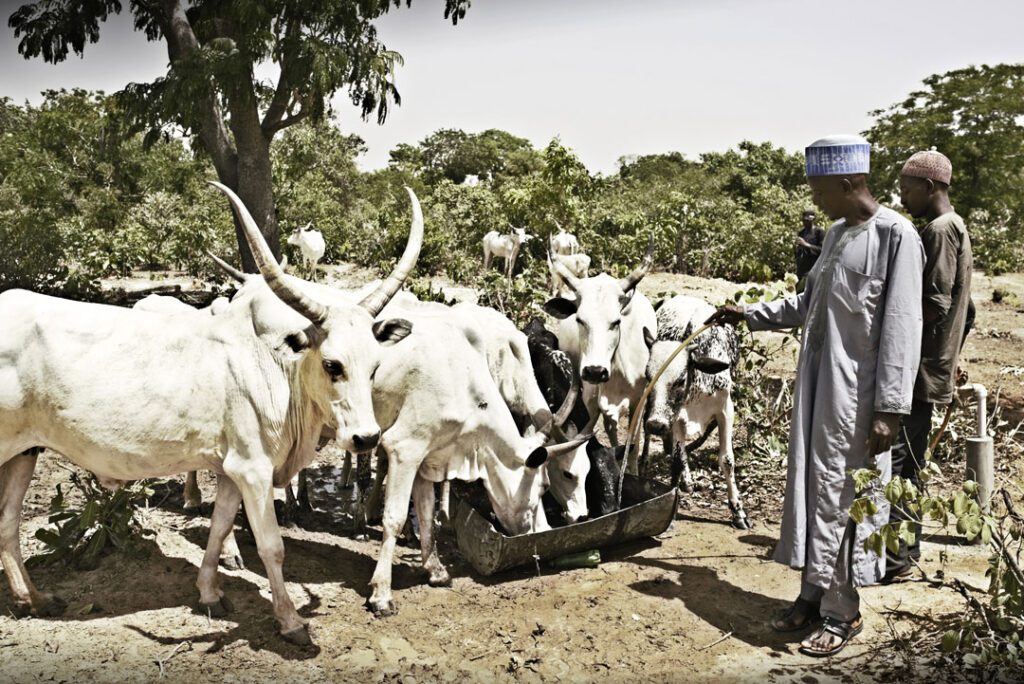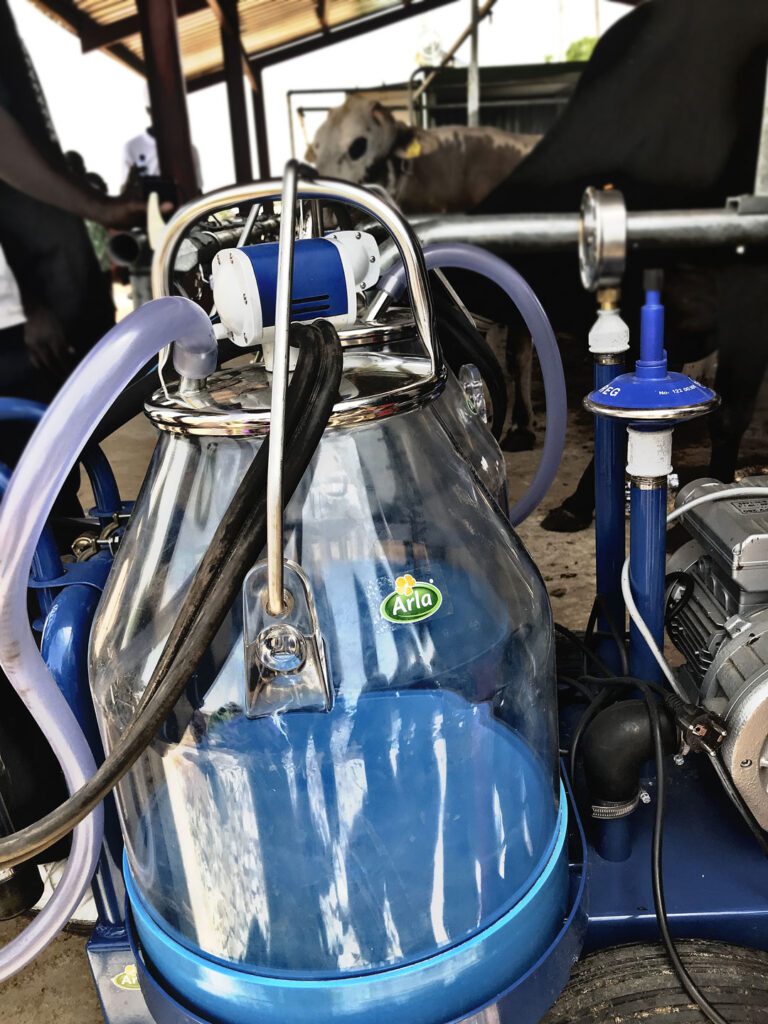Share this page
Milky way to development – Arla’s commitment to sustainable dairy development
Working for a sustainable dairy in Nigeria

Alignment with SDGs
AUTHOR
Amaka Kolawole Arla Foods • Nigeria
Abstract
Nigeria’s population – set to reach close to 400 million people by 2050 – is among the fastest-growing of any nation in the world, and there is a growing demand for nutritious dairy products. The local dairy industry is currently able to supply less than 10 per cent of this demand as most Nigerian dairy farmers are small scale and most milk collection consists of milking the cows by hand into small open bowls or buckets. If the milk is not consumed in the farmer’s own household, it usually does not travel further than to the nearest town market.
It is against this background, Arla’s ambitious growth targets for its Sub Sahara African business plus its firm commitment to leading the way on delivering on the UN’s sustainable development goals, that the Milky Way Partnership Nigeria was conceived in 2016. Supported by Danida, the collaboration included the Nigerian Government, the NGO Care, the Danish Agricultural and Food Council, the local cooperative MILCOPAL, the Nigerian pastoralist organisation Coret and Propcom, a rural and agricultural markets development programme. Its remit is to develop a socially, environmentally and economically sustainable dairy value chain.
Generating an income
With milk production traditionally being a by-product of cattle breeding, turning it into a business which can generate a steady income and changing the mindset from pastoralist to dairy business is a key strand of the project’s remit, as is ensuring that women also have a role. Working with a local partner, a series training programmes are being delivered to the dairy farmers out in the field, including dairy business, milk and hygiene, fodder, feeds and feeding, and herd management. An Arla demonstration farm will showcase good farm management practices and function as a training hub for the next generation of dairy farmers.
In addition, Arla’s European farm owners plan to visit Nigerian dairy farmers to exchange knowledge on good farming practices. Reciprocally, the cooperation will provide European farmers with knowledge about farming in emerging markets and under very different climate conditions.

Increasing milk production
Building the capacities of both the farmers and their animals are two of the three major objectives of the project. After initial establishment, milk production increased for almost all farmers – for some drastically and up three or four times more. Fodder for cows is now more consistently available, which significantly improves the quality of milk.
The third objective, which is to provide an off-take model for the farmers’ milk and market it locally, came to fruition last year. In Kaduna state, in north Nigeria, where the project is based, brand new, automated milk parlours, have been installed. It is revolutionising both the collection and distribution of milk, which is taken in chilled lorries to the Kaduna Dairy Plant for processing into locally sold dairy products. This development is allowing the pastoralists to settle, which has proven to be positively received.
Our goal is to build the local dairy sector to increase the income of every farmer and enable Nigeria to better feed its growing population by boosting local production.
Amaka Kolawole Tweet
Scaling up
Building on this success, in 2019, Arla committed to scaling up its commitment to develop a sustainable dairy sector in Nigeria, signing a new Memorandum of Understanding with Kaduna State and the Nigerian government. While the State and the Government will offer 1,000 nomadic dairy farmers permanent farmlands with access to water, Arla will be the commercial partner that will purchase, collect, process and bring the local milk to market.
Arla will also continue to contribute with experience from its pan-European supply chain and its cooperative farmer culture to deliver commercial success with the farmers in Nigeria through the development of a viable business model, which includes take-off agreements with the farmers and a transparent payment system.
“Bringing local milk into our product portfolio is part of the way we believe that our business will be long-term successful in Nigeria. We will only succeed in growing local farmers’ incomes, Nigeria’s dairy sector and achieving Arla’s ambitions in West Africa if the project and its activities are commercially viable. This is a great example of business and development going hand in hand to ensure long-term sustainable solutions that are built to last,” says Tim Ørting Jørgensen, head of Arla’s international business.

For more information
see our press release and the information on Arla website.






